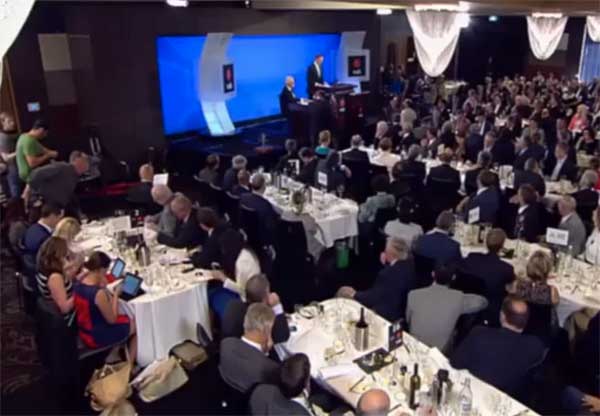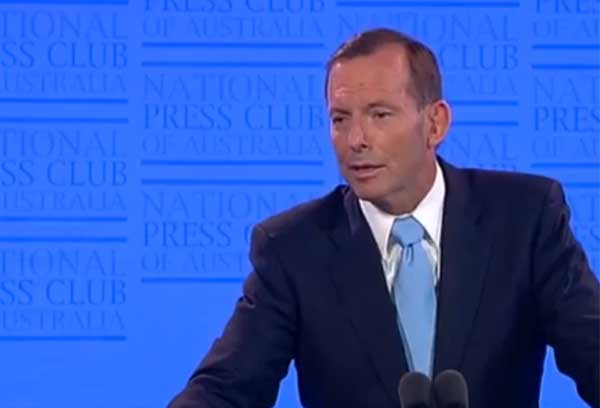One of the worst aspects of the lurid three-year Punch-and-Judy show of the Rudd-Gillard conflict was the way that it effortlessly subsumed nearly all aspects of public policy into a dominant rhetoric of “leadership speculation”.
It is important who runs the country, of course, not least because of the vast power bestowed in modern Australia upon the office of Prime Minister.
But the fascination with leadership leads to some very poor analysis, from both the media and politicians themselves. A one-dimensional frame for national politics is never particularly enlightening: key issues will be ignored, simply because they don’t fit the dominant narrative.
The tendency for the media to lose its composure during leadership tilts is well documented, and was thrashed out endlessly during the Rudd-Gillard wars. I wrote a number of columns about it myself, arguing that the media should get on with the job of covering policy and legislation. Such high-minded injunctions looked pretty silly by early 2013, as the federal ALP doused itself with petrol and wandered around asking strangers if they had a lighter.
As if we need reminding, this instability played a critical role in the election of the Abbott government. And yet just two years later, the Abbott government finds itself in a similar predicament.
Unsurprisingly, the media is reveling in the Coalition’s misadventures. It’s what we do best. Endless stories reporting anonymous leaks about leadership are once again flooding the web servers. Much of Fairfax and News led today with a story that Foreign Minister Julie Bishop refused to give Abbott an assurance she wouldn’t challenge. Even the leaks themselves generate stories: Malcolm Farr today informs us that the “REAL question gripping Australian politics” is who leaked the story about Bishop.
As we saw under Julia Gillard, this kind of destabilisation can rapidly cripple a government. The problem with the Leadership Question is that, even without a spill, the very fact that people are talking about it tends to crowd out all other considerations. Long-term planning vanishes. Policies are adopted or abandoned on the run. A siege mentality sets in.
The Coalition is now well down the rabbit hole of leadership speculation, and it is making just the sort of bad decisions that the Rudd and Gillard administrations used to make.
Yesterday’s much-ballyhooed speech by Prime Minister Tony Abbott at the National Press Club shows how quickly the fever has taken hold. After an unhappy summer marked by gaffes and missteps, Abbott had penciled in the speech as a chance to get his broken down jalopy back on the road.

If the speech started out as a circuit breaker, it rapidly transformed into a kind of crisis briefing, in which the embattled Prime Minister pitched to his party room colleagues for a chance to hold on to his job.
Judged in those narrow terms, it may well have succeeded – just. For all his carefully crafted sound bites, Abbott has never been an inspirational orator. But he did make some sound arguments about how a leadership change might be judged by voters. While MPs elect a leader, he pointed out, it is voters who elect a prime minister – a mandate that party rooms neglect at their peril.
“Sooner or later, all responsible MPs have to put the long term national interest ahead of their short term political interest,” he warned.
As Lenore Taylor writes today, “the point of the speech was to tell agitating backbenchers that he would stare them down and that they were doing the country a disservice by the very act of leadership agitation.”
And there was a policy fillip for the dissenters: a backflip on his cherished paid parental leave scheme, which would have paid a replacement wage to young parents raising a newborn.
The scheme, which was more generous than the minimum wage scheme Labor implemented under Julia Gillard, was widely considered over-generous and wasteful. It was opposed by most of the Coalition backbench.
But here again, Abbott showed the perils of policy on the run. While the parental leave scheme was undoubtedly unpopular with his own party, it was popular with working women and some women’s policy advocates, who liked the explicit link it established for paid leave as a right of employment.
While Abbott promised to use the money set aside for the scheme for a future “families package”, he gave no concrete details of what that might entail. He also neglected to mention that his government has cut more than a billion dollars from child-care funding since taking office. Taken together, the cuts to child care and the backflip on parental leave means that Australian families are in fact worse off before.
The parental leave volte-face means another Abbott policy has failed. Like GP fees and university deregulation, Abbott has once again sustained serious political damage for a policy he never managed to implement.

The larger problem with a speech mostly targeted to Liberal Party MPs was that Abbott had to appeal, once again, to his ideological base. We heard plenty about Labor’s debt and deficit and the threat of Islamic terrorism. But the true cause of the Coalition’s unpopularity is its social policies: its attack on Medicare, its insistence on deregulating university fees, and the overwhelmingly unfair nature of its budget.
If the Queensland election has demonstrated anything, it is that voters will punish politicians that attack public services and dismantle social safety nets without a mandate. If he was really listening to the electorate, Abbott would admit this, and tack back towards the centre.
What could he do? Abandon university deregulation. Give up on the GP co-payments. Restore some of the family payments Joe Hockey cut in 2014. Fashion a 2015 budget for the middle class, not big business.
On these substantial issues, Abbott stayed the course. Perhaps he has to: ideologically wedded to a hard right agenda, the Prime Minister relies on right-wing backbenchers to stay on as leader. Such policy changes would never be acceptable to the bulk of the party room. Nor would the conservative pundits and commentators who wield so much influence on this government be pleased with such concessions.
And this is the real problem faced by whoever runs the Liberal Party in 2015. Conservative ideology has drifted well to the right of the general electorate. For a long time, the timidity of the ALP disguised just how toxic the neoliberal brand of conservative politics has become. But, in office, the nastiness of the Coalition’s attacks on the welfare state has become impossible to conceal.
As the ALP gropes towards a rediscovered belief in fairness and slowly rebuilds its grass-roots campaign base, the Coalition’s dominant political ideology looks increasingly out of touch. There is no sign that Julie Bishop understands this, or, if she does, can do anything about it.
Donate To New Matilda
New Matilda is a small, independent media outlet. We survive through reader contributions, and never losing a lawsuit. If you got something from this article, giving something back helps us to continue speaking truth to power. Every little bit counts.



